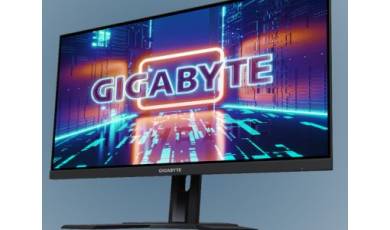Flash firmware on Hisense Sero 7 LT
Mobiles >> Hisense >> Hisense Sero 7 LT| Specifications | Reviews | Secret codes |
| Unlock phone | Root phone |
| Backup | Flash Firmware | Screenshot |
How to flash Hisense Sero 7 LT?
Why reinstall the firmware?
Errors in the Android OS start to appear regularly.
Some applications do not open, reinstalling which does not lead to a positive result.
Many programs from the Play Market do not start.
The phone restarts by itself for no reason.
The phone is slow.
You want to update the firmware, as it does not suit you in terms of functionality.
Where can I find the firmware?
On the official website of the phone manufacturer.
On specialized services where users post custom or official OS.
What should be done before installing the firmware?
Create a backup copy of user data and transfer it to your computer.
Insert your SD card into your phone. It must have enough memory to fit the firmware.
Find information about your smartphone model.
Fully charge your phone battery.
Find and download the archive with Firmware.
Installing TWRP Recovery
Install the Official TWRP App from the Play Store on your phone. And run this application.
When you start the application for the first time, you must consent to future manipulations, as well as consent to granting the application Superuser rights. Check the checkboxes and press the 'OK' button.
On the next screen, select 'TWRP FLASH' and give the application root rights.
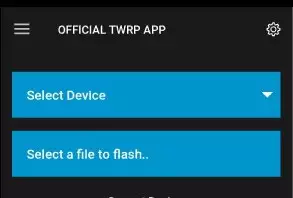
On the main screen of the application, click 'Select Device', and find your phone model.
After selecting a phone, the application will direct the user to a web page to download the modified recovery environment image file. Download the proposed *.img file.
When the file is loaded, you need to return to the main screen of the Official TWRP App and press the 'Select a file to flash' button. Select the file downloaded in the previous step.
Click the 'FLASH TO RECOVERY' button and confirm your choice, click 'OK' in the question window.
After the burn process is complete, the message 'Flash Completed Succsessfuly!' appears. Click 'OK'. The TWRP installation procedure can be considered complete..
Copy the required files to the memory card. Using a PC or laptop card reader.
Insert a SD memory card into the phone.
To reboot into recovery, you need to enter the menu accessible by pressing the button with three stripes in the upper left corner of the main screen of the application. Select the 'Reboot' item, and then click on the 'REBOOT RECOVERY' button. The phone will reboot into the recovery environment automatically..
Firmware via TWRP
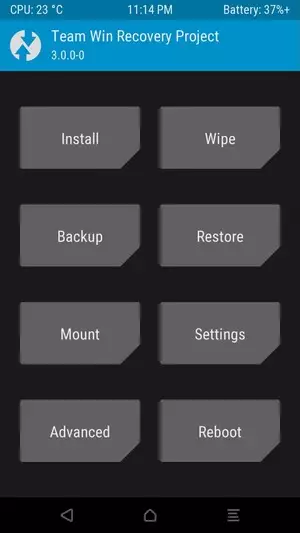
Before flashing, you need to clear the 'Cache' and 'Data' sections, press 'WIPE' on the main screen. This will delete all user data from the device, but avoid a wide range of software errors and other problems.
Now you can start flashing. Click the 'Install' button.
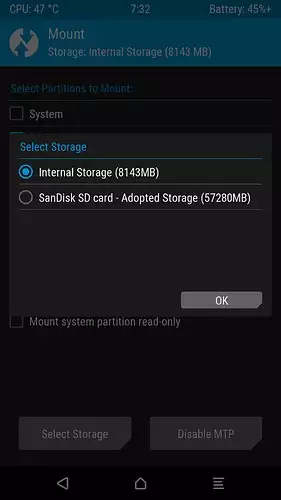
The file selection screen is displayed. At the very top is the 'Storage' button, select the location where the firmware file is located.
Select the storage to which the files were copied.
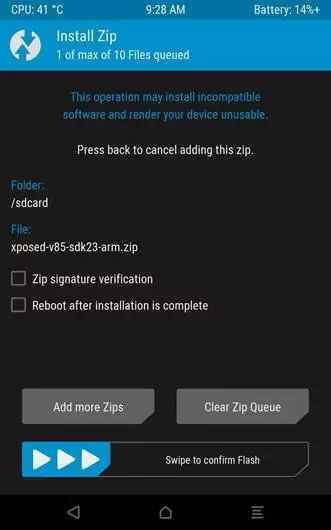
Select the firmware file and click on it. A screen opens with a warning about possible negative consequences, as well as the item 'Zip signature verification'. This item should be checked by placing a cross in the check-box, which will avoid using damaged files when writing to the phone's memory sections.
The procedure for writing files to the device's memory will begin, accompanied by the appearance of inscriptions in the log field and the completion of the progress bar.
When the procedure for installing the firmware is completed, the message 'Successful' appears on the screen.
Summary: Chip: Rockchip RK3066; Process technology: 40 nm; CPU: ARM Cortex-A9; CPU bits: 32 bit; Instruction set: ARMv7-A; Level 1 cache memory (L1): 32 KB + 32 KB; Level 2 cache memory (L2): 512 KB; CPU cores: 2; CPU frequency: 1600 MHz; GPU: ARM Mali-400 MP4; GPU cores: 4; RAM capacity: 1 GB; Operating system (OS): Android 4.1.2 Jelly Bean; Type/technology: LCD; Diagonal size: 7 in; Width: 6.04 in; Height: 3.54 in; Aspect ratio: 1.707; Resolution: 1024 x 600 pixels; Pixel density: 170 ppi; Color depth: 24 bit16777216 colors; Display area: 56.7 %; Other features: CapacitiveMulti-touch; Sensors: Accelerometer; Image resolution: 640 x 480 pixels0.31 MP; Video resolution: 640 x ...
Comments, questions and answers on the flash firmware Hisense Sero 7 LT
Ask a question about Hisense Sero 7 LT



